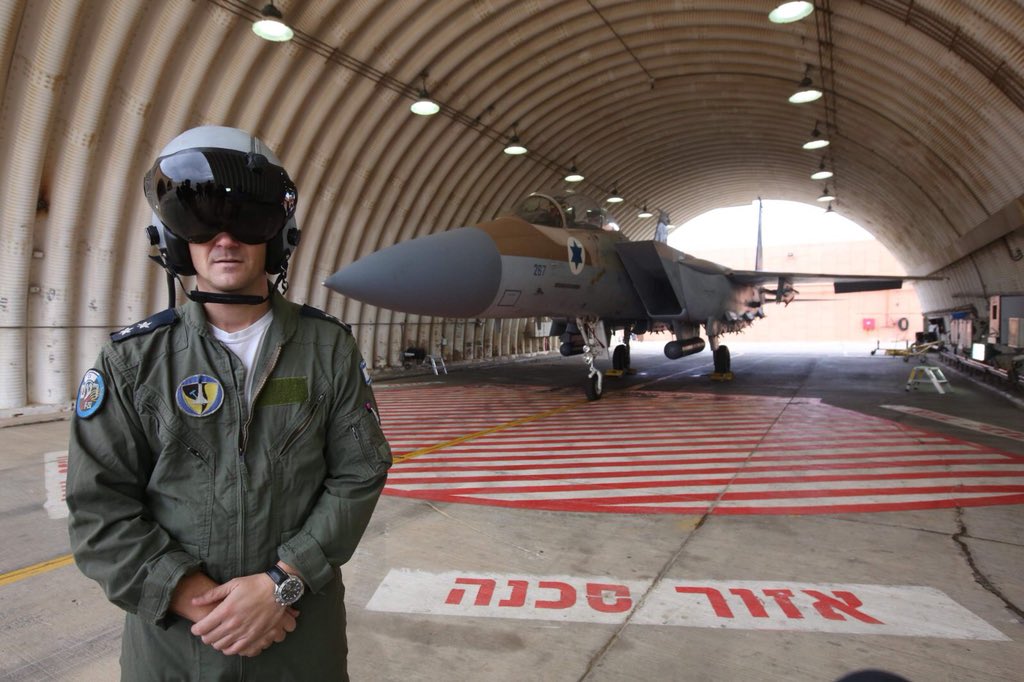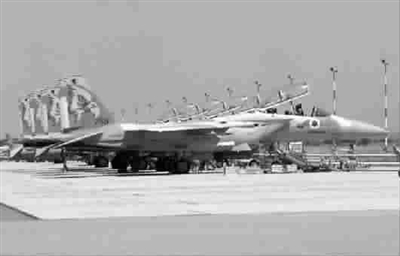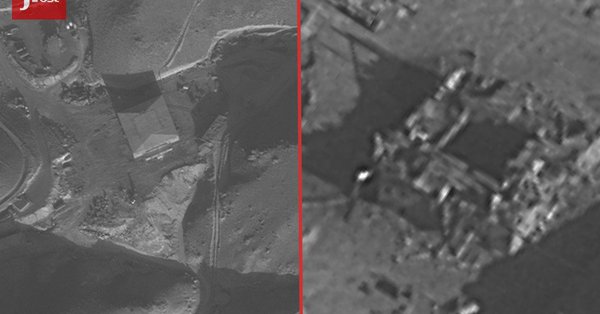The Israeli military said: We bombed the Syrian nuclear reactor in 2007.

[Global News] Sputnik news agency & radio reported on March 21st that the Israeli military admitted that it bombed the Syrian nuclear reactor in the final stage of its construction in 2007.
Orchard operation: confusing cross-border air strikes
In September 2007, seven Israeli warplanes carried out a bombing mission in Syria — —
Xinmin Evening News published an article in July 2014 detailing the bombing. The full text is as follows:
On the afternoon of September 6, 2007, Syrian media reported that several Israeli warplanes violated Syrian airspace in the early hours of that morning. Syrian air defense forces immediately met the enemy, forcing Israeli warplanes to leave the country. Israeli warplanes dropped bombs on desert areas before leaving, causing no casualties or property losses. In the evening, Israeli radio said: The Syrian side reported that nothing had happened. That evening, a spokesman for the State Council said that he only had "contradictory" reports. The different accounts of Syria, Israel and the United States made the truth of the incident confusing, and it was not until time passed that the relevant facts of this mysterious incident gradually surfaced.

Since the founding of Israel in 1948, Syria and Israel have been in a hostile state. However, it seems that both sides are deliberately playing down the obvious acts of war on September 6, 2007. Until time passed, some people who had participated in the operation were interviewed by the German media and agreed to disclose the relevant details without revealing their identities: that night, Israeli air force pilots did not randomly throw bombs into the deserted desert, but accurately targeted and destroyed a secret facility in Syria. Although the truth of this secret incident has not been completely revealed, its impact can still be felt today.
"Amazing news" comes from America.
It turned out that in the spring of 2004, the National Security Agency of the United States detected that the telephone line between Pyongyang, the capital of North Korea, and Archibar, a desert area in northern Syria, was extremely busy, and Archibar had a mysterious secret factory. The National Security Agency of the United States handed over the relevant information to the 8200 unit of the Israeli Military Intelligence Agency, which is responsible for radio reconnaissance. Although the 8200 troops claimed to have "firmly locked" Archibar, the secret in this factory is still difficult to solve.
In the second half of 2006, a senior Syrian official who stayed in a hotel outside London gave Israeli intelligence agencies a good opportunity to steal secrets. The man left his laptop in the hotel room when he went out. Israeli agents seized the opportunity, implanted a "Trojan horse" program in his computer and stole the secret information in the computer.
Mossad in Israel obtained the architectural scheme, documents and hundreds of photos of the factory in Archibar from the hard disk of the computer, which clearly showed the scene of the factory in different construction periods. At the initial stage (the date is not shown in the photo, but it is speculated that it may be 2002), the building looks like a simple tree house, and the pipeline with suspicious shape can be seen on the construction site connecting with the pumping station along the Euphrates River. You can see the concrete pier and roof in later photos. In the final stage, the whole building is like a huge shoe box, which is obviously a camouflage building. Photographs taken inside the building show that this place may be used for processing nuclear materials. One of the photos shows an East Asian in sweatpants standing next to an Arab. Mossad soon found out the identities of the two men: one was suspected to be involved in a foreign nuclear engineer, and the other was the head of the Syrian Atomic Energy Commission.
In February 2007, a 63-year-old Iranian general defected to the United States. From his mouth, the CIA got an unexpected news: in addition to the uranium enrichment plant known in the West, Iran is still building a second secret nuclear plant. In addition, Iran is funding a top-secret nuclear program in Syria. Israeli intelligence agencies speculate that there may be secret cooperation between Syria and Iran, and the secret factory in Al-Aqibar is likely to be a backup nuclear reactor under construction in Iran. This situation has aroused great concern of Israeli Prime Minister Olmert, who asked to send spies into foreign territories to collect intelligence.
Cross-border reconnaissance and planning strikes
One night in August 2007, Israeli special forces flew by helicopter at low altitude, crossed the Syrian border and took soil samples near the Al-Aqibar factory in the desert area near Deir ez-Zor. The operation had to be terminated early because it was discovered by Syrian patrol forces, and the Israelis still lacked the decisive evidence they needed. However, Tel Aviv’s supporters of quick action believe that soil samples are enough to prove that "the nuclear program does exist".
In September 2007, the cargo ship Ahmed departed from Pyongyang and arrived at the Syrian port of Tartus. Israel’s Mossad said that the ship was loaded with nuclear materials. After receiving the above information, Israel first tried to force Syria to give up its nuclear program through diplomatic means, but Syria denied that the Al-Aqibar factory was related to nuclear facilities, emphasizing that the factory was just an ordinary military chemical plant.
It is Israel’s established principle that neighboring Arab countries are not allowed to possess nuclear weapons. Since diplomatic efforts failed, Israel quickly formulated the "Orchard Action" plan to air strike the facility. In order to carry out this plan, Israel specially formed a task force, which was divided into two groups: the air force "Kingfisher" special forces secretly infiltrated Al-Chibar, responsible for reconnaissance, guidance and damage assessment; The air raid detachment consists of the 69th Tekken fighter squadron, the 134th electronic warfare squadron and the 192nd airborne early warning squadron of the Air Force, and its weapons and equipment include two G550 electronic warfare aircraft, an early warning aircraft and seven F-15I fighters.
"Kingfisher" sneaked into and guided the bombing.
At about 23: 00 on September 5, 2007, at Ramat David Air Force Base in the south of the Israeli port city of Haifa, a squadron of the Israeli Air Force received an "emergency drill" order, and all 10 fighters on standby took off. After completing the formation, they flew west and entered the Mediterranean Sea. Soon, three F-15I fighters were ordered to return, and the other seven planes continued to fly to the Syrian border at low altitude in the northeast.
At 0: 00 on September 6th, the fleet flew to the border between Turkey and Syria. In order to reduce the load, the F-15I fighter abandoned the auxiliary fuel tank and continued to fly. At this time, the G550 electronic warfare aircraft launched a network attack system to attack the Syrian air defense system in information warfare, and the F-15I blew up a radar station near the border in northern Syria with precision-guided weapons. After another 18 minutes, the plane arrived near Deir ez-Zor. At this time, the Israeli pilots have received the coordinate data of the Archibar factory sent by the "Kingfisher" special forces and input it into the fighter fire control system. Then, a powerful bomb enough to completely destroy the target was projected. After the attack was completed, all the air force fighters returned, and the "mysterious factory" in Syria was completely erased.
After receiving a briefing from the military that the target was destroyed, Israeli Prime Minister Olmert called Turkish Prime Minister Erdogan to inform him of the whole situation and entrusted him to tell Syrian President Bashar al-Assad that Israel will never tolerate the completion of another nuclear plant, but Israel does not want to make a big deal out of it and still hopes to live in peace with Syria. If Bashar chooses to keep a low profile in handling air strikes, he will adopt the same strategy.
Action enlightenment and post-war aftermath
Israeli special forces played an important role in this air raid. They not only entered the Al-Aqibar area of Syria to obtain soil samples at the beginning of the operation, but also infiltrated the area before the air strike team took off. They lurked near the factory to carry out reconnaissance, guidance and evaluation of air strikes, not only determined the detailed coordinates of the factory, but also guided the plane to reach the target accurately, and finally evaluated the damage effect of the target.

In addition, the cyber warfare capability of the Israeli Air Force is also an important guarantee for the success of the operation. Their G550 electronic warfare aircraft successively suppressed the air defense system on the Syrian border and the air defense missile system near the "mysterious factory", which completely paralyzed the information acquisition, transmission and processing functions of the Syrian air defense system, even if its weapon platform was unscathed, it could not play any role.
In addition, before the action, the security measures of the Israeli government were also extremely effective. Only the Prime Minister, the Minister of Defence and the Minister of Foreign Affairs knew the inside story before launching the air raid, and they paralyzed the Syrians by conducting exercises in the Golan Heights. Israeli Prime Minister Olmert also offered to hand over the Golan Heights in June 2007 in exchange for peace with Syria. Even when the "Orchard Operation" was officially launched, the orders issued by the Israeli army were still exercises. During the bombing, Israeli warplanes bypassed Lebanon from the Mediterranean Sea to the north, effectively confusing the Syrians.
"The bombed facility is not a nuclear factory, but a conventional military facility." In mid-January 2009, President Bashar still insisted on this statement in an interview with German weekly Der Spiegel: "We could have fought back. But do we really want to start a war because of this? Then we will fall into the trap of the Israelis. "